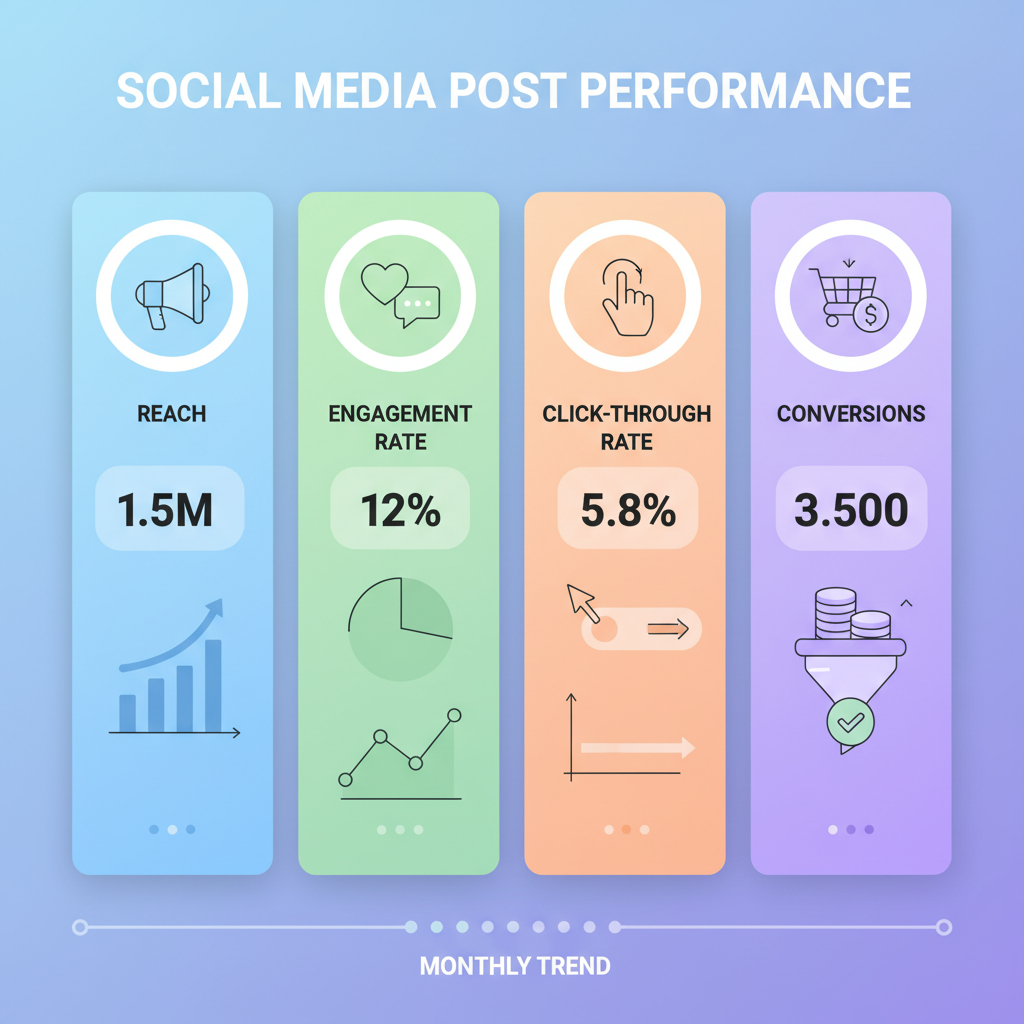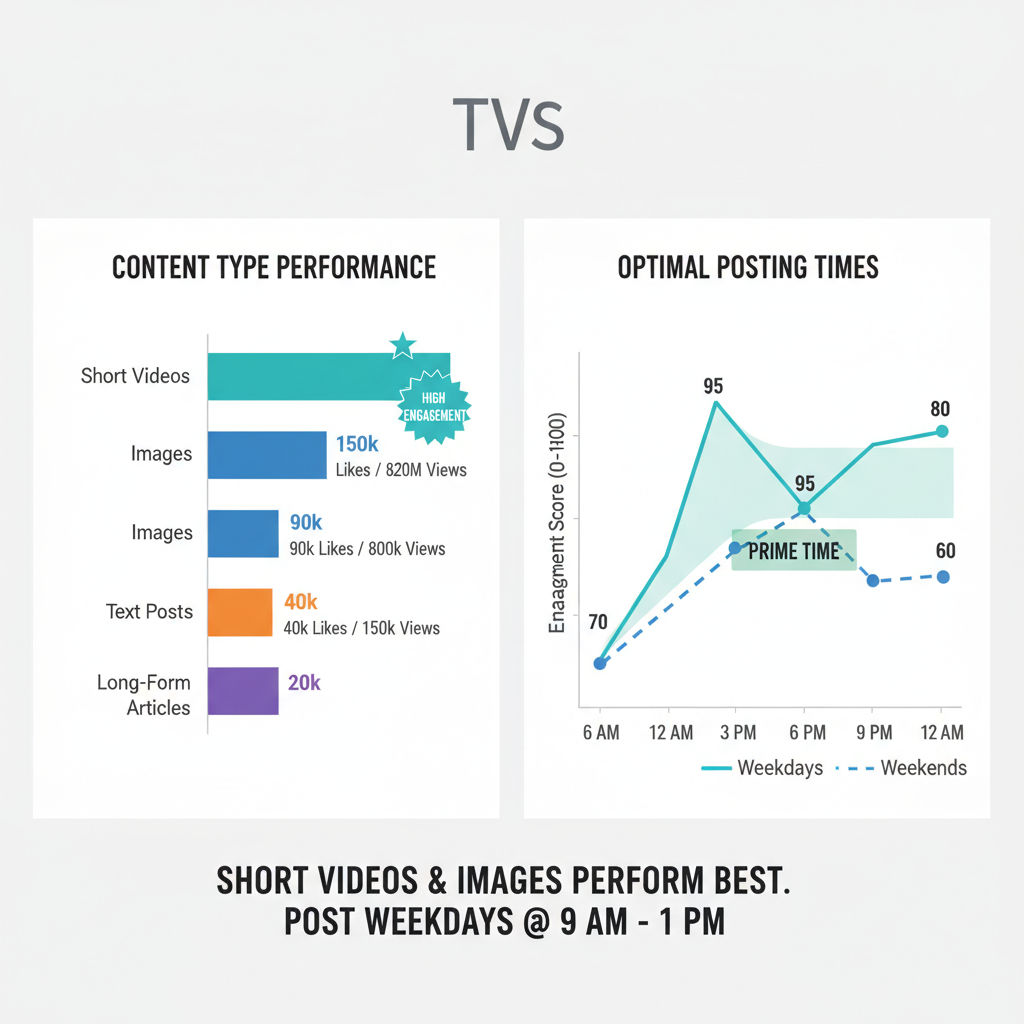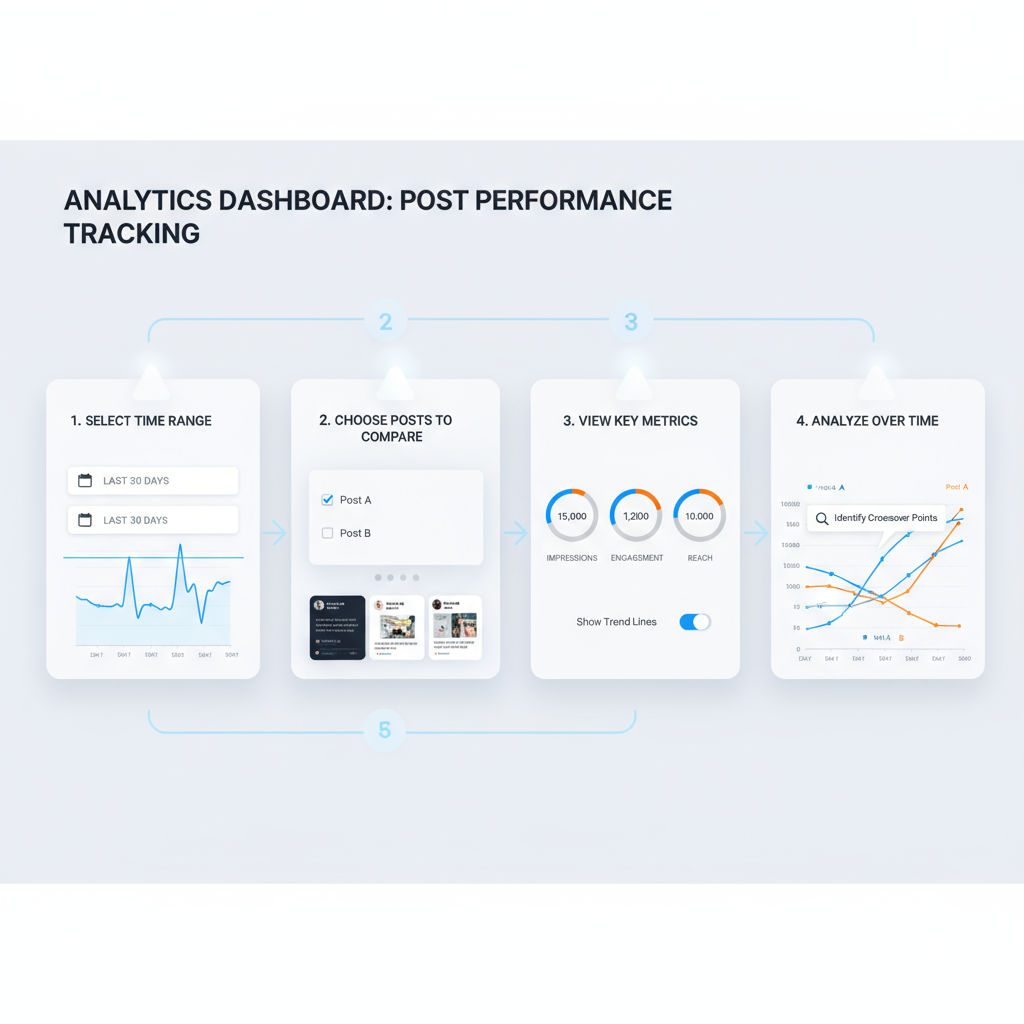Measure and Improve Social Media Post Performance
Learn how to measure and enhance social media post performance by tracking key metrics, analyzing formats, and optimizing posting times.

Understanding Post Performance in Social Media Marketing
In today’s competitive digital landscape, understanding post performance is essential for maximizing the impact of your social media marketing efforts. Post performance encompasses how well individual posts meet strategic objectives—such as engagement, reach, and conversions—and provides actionable insights for refining your content strategy. Consistent measurement helps identify effective tactics, optimize resource allocation, and eliminate underperforming approaches.

Post performance is far more than superficial vanity metrics; it’s a holistic analysis of user interaction and content visibility. By tracking targeted indicators over time, brands can make smarter, data-driven decisions to boost online presence and ROI.
---
Key Metrics to Monitor
Three primary metrics define post performance across most social platforms:
- Engagement Rate
- Measures the level of interaction—likes, comments, shares, saves—relative to your audience size.
- Formula: `(Total Engagement ÷ Total Followers) × 100`
- Reach
- The number of unique users who see a post. High reach indicates effective content distribution and audience targeting.
- Impressions
- The total number of times a post is displayed, including multiple views by the same user.
| Metric | Definition | Why It Matters |
|---|---|---|
| Engagement Rate | Interactions divided by audience size | Shows how compelling your content is per viewer |
| Reach | Unique viewers | Indicates audience size and distribution effectiveness |
| Impressions | Total views including repeats | Highlights frequency of exposure |
---
Setting Measurable Goals
Goals should align with realistic benchmarks for your industry and platform:
- Instagram: Average engagement rates range between 1–3%
- Twitter/X: Engagement often sits under 1%
- LinkedIn: Engagement between 0.5–1% is common for B2B brands
Example measurable goals:
- Achieve an engagement rate of at least 2% within three months.
- Increase reach by 20% quarter-over-quarter.
- Grow impressions by at least 15% in the next six weeks.
---
Tracking Performance with Analytics Tools
Leverage native analytics for platform-specific insights:
- Instagram Insights
- Twitter Analytics
- Facebook Business Suite
- LinkedIn Analytics
Third-party tools streamline multi-platform tracking:
- Hootsuite: Aggregates cross-platform reports.
- Buffer Analyze: Tracks comparative insights over time.
- Sprout Social: Offers demographic breakdowns and engagement trends.

Establish a regular tracking schedule (weekly or monthly) to identify long-term patterns and quickly respond to shifts in audience behavior.
---
Analyzing Content Types for Engagement
Different content formats yield varying engagement rates depending on platform and audience preferences.
High-Performance Formats:
- Short-form video (Reels, TikTok, Shorts)
- Carousel posts (multi-image storytelling)
- Stories (temporary content with interactive elements)
When a content format consistently drives superior engagement, increase its share in your publishing mix to maximize post performance.
---
Testing Posting Times
Discover the best times to post by testing systematically:
- Publish similar content at different times/days.
- Track engagement and reach over two to four weeks.
- Pinpoint time slots with consistently above-average results.
| Time Slot | Avg Engagement Rate | Recommendation |
|---|---|---|
| Morning (7-9 AM) | 2.3% | Ideal for news and educational content |
| Afternoon (1-3 PM) | 1.8% | Suited for casual posts |
| Evening (6-9 PM) | 2.7% | Strong for entertainment and lifestyle topics |
---
Implementing A/B Testing
A/B testing evaluates performance differences between two versions of a post.
Test variables like:
- Captions: Different hooks or CTAs.
- Headlines: Emotional vs. factual tones.
- Media formats: Image vs. video vs. carousel.
Example A/B Test Plan:
Post A: Image + short caption
Post B: Video + expanded caption
Measure: Engagement rate, CTR
Run Duration: 7 daysApply winning elements to future posts to steadily improve metrics.
---
Monitoring Audience Demographics
Audience demographics can shift over time. Regularly monitor changes in:
- Age range
- Gender distribution
- Geographic location
- Device usage (mobile vs. desktop)
Adjust voice, style, and content types as demographic trends evolve to sustain high engagement levels.
---
Repurposing Top-Performing Content
Maximize the lifespan and visibility of high-performing posts through repurposing:
- Adapt a popular blog post into a carousel summary.
- Convert an engaging Twitter thread into Instagram Stories.
- Cross-post a viral video across multiple platforms.

Ensure each adaptation aligns with platform-specific culture and technical requirements.
---
Learning from Underperforming Posts
Underperformance is an opportunity for optimization. Review low-metric posts for:
- Visual quality and professionalism
- Caption structure and engagement prompts
- Posting times and relevance
- Audience alignment with the topic
Refine visuals, messaging, and timing before reposting or replacing.
---
Monthly Performance Review and Action Plan
Establish a monthly review cycle to improve tracking and decision-making:
- Gather data from all analytics tools.
- Identify rising or falling trends.
- Highlight successful posts and dissect their strengths.
- Investigate low performers to identify root causes.
- Adjust the content calendar accordingly.
| Objective | Action | Timeline | Metric Target |
|---|---|---|---|
| Boost engagement rate | Increase short-form video posts by 20% | Next 30 days | +0.5% ER |
| Expand reach | Test two new posting times | Next 2 weeks | +10% reach |
| Improve impressions | Repurpose 3 top posts | Next month | +15% impressions |
---
Conclusion
Enhancing post performance is an ongoing cycle: define relevant metrics, set attainable goals, track data, analyze formats, experiment with timing, and refine creative elements continually. By committing to consistent reviews and strategic adjustments, brands and creators can significantly boost social media results and audience engagement. Start applying these steps today to transform your posts into measurable growth drivers.

